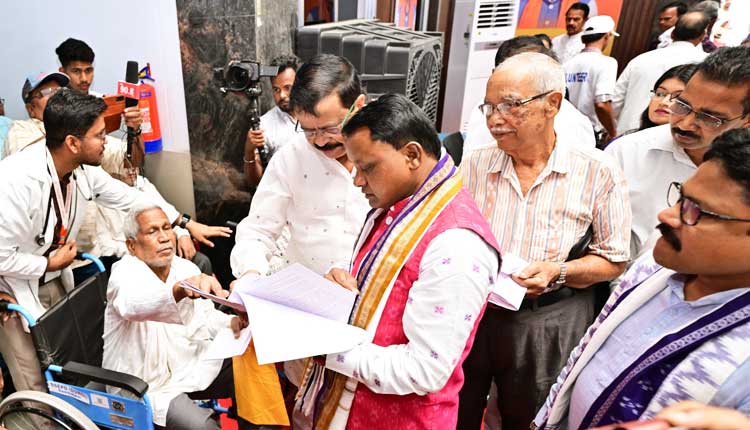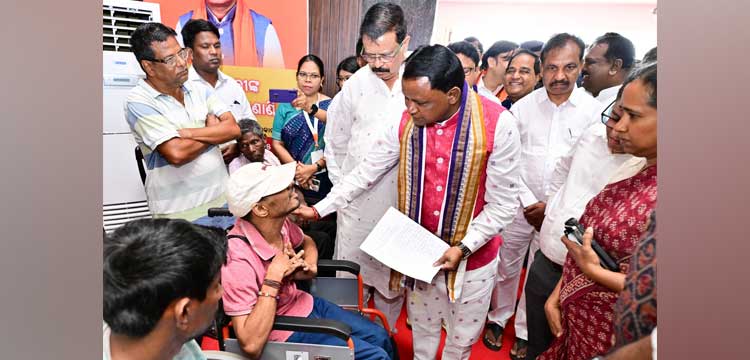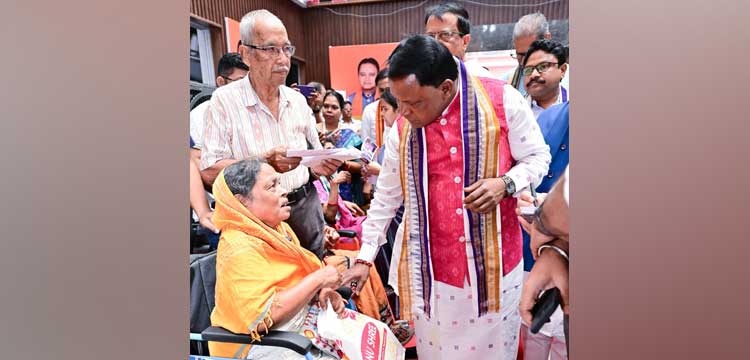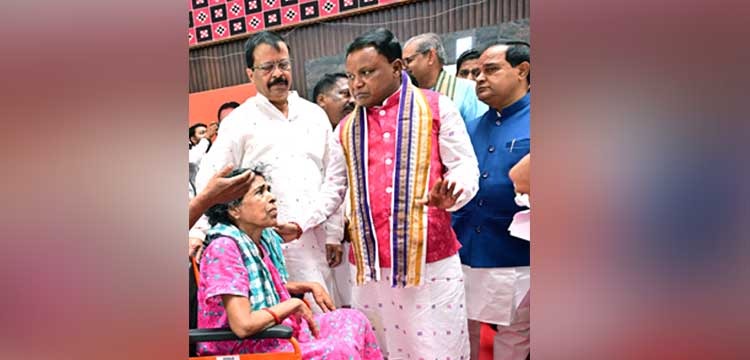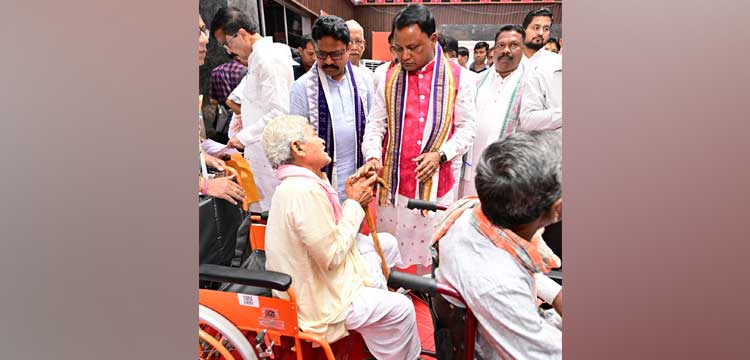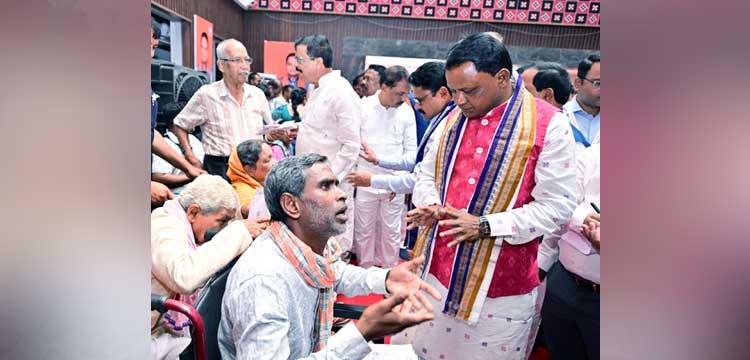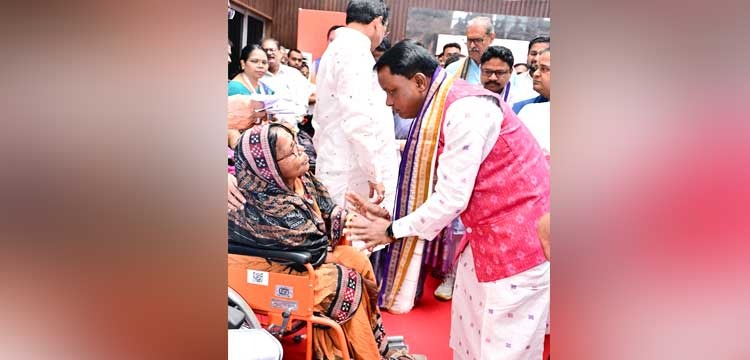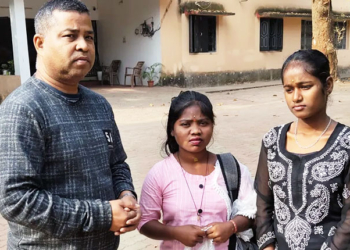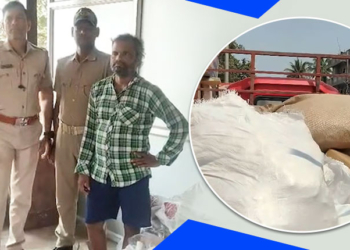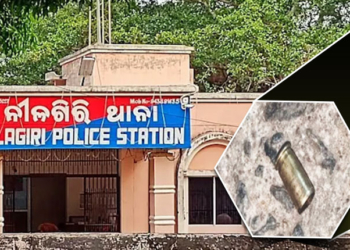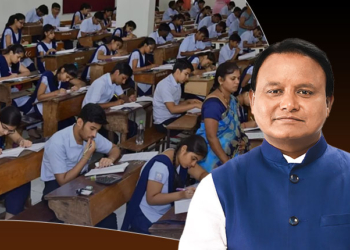Sambalpur: In a remarkable display of accessible governance, Odisha Chief Minister Mohan Charan Majhi, accompanied by a robust contingent of Ministers and officials of the State administration, transformed the Sambalpur Municipal Corporation office into a hub of public grievance redressal on Monday morning.
According to an official press release, by 8 a.m., the premises were teeming with citizens eager to voice their concerns directly to the state’s top leadership, marking the 10th session of this innovative initiative.
Unlike the previous nine sessions held in Bhubaneswar, this event stood out as the government brought its entire administrative machinery to Sambalpur, embodying the spirit of a “people’s government.”
The Chief Minister was joined by 10 cabinet ministers, who included Deputy Chief Minister-cum-Agriculture & Farmers’ Empowerment Minister Kanak Vardhan Singh Deo, Revenue & Disaster Management Minister Suresh Pujari, Health & Family Welfare Minister Mukesh Mahaling, Housing & Urban Development Minister Krushna Chandra Mahapatra, Forest, Environment & Climate Change Minister Ganesh Ram Singh Khuntia, Panchayati Raj, Drinking Water & Rural Development Minister Rabi Narayan Naik, Food Supplies & Consumer Welfare Minister Krushna Chandra Patra, Industries Minister Sampad Chandra Swain, Steel & Mines Minister Bibhuti Bhusan Jena, School & Mass Education Minister Nityananda Gond, and Higher Education & Culture Minister Suryabanshi Suraj were present, listening to the people’s grievances..
Senior officials, such as Additional Chief Secretaries Satyabrata Sahu, Surendra Kumar, and Deo Ranjan Kumar Singh, along with other secretary-level officers, ensured a seamless process.
The previous evening, the Chief Minister and his Cabinet arrived in Sambalpur, paying their respects at the Maa Samaleswari temple and praying for the welfare of Odisha’s people.
Speaking at the event, Majhi described the grievance redressal programme as a “positive message” for the government, the people, Odisha, and democracy itself.
He highlighted that Prime Minister Narendra Modi had praised the initiative, noting that Modi’s guidance has inspired the administration to forge closer ties with the public.
“Our goal is to achieve Odisha’s broader development while ensuring that the struggles of the poor and helpless are not ignored,” Majhi said. “Unlike the previous government, which was indifferent to such concerns, we have resolved to hold grievance redressal sessions across the state. Today, it’s Sambalpur; tomorrow, it will be other regions.”
The Sambalpur session saw approximately 1,000 complaints registered online and 1400 offline. A single-window system facilitated immediate assistance, particularly for those battling critical or incurable diseases.
Through the Chief Minister’s Relief Fund, 18 individuals received medical aid totaling ₹19.5 lakh for treatment expenses. A dedicated medical team was stationed at the grievance cell to expedite this process.
Beyond medical aid, citizens raised a range of issues, from pension disputes to infrastructure needs. Each complaint was addressed with urgency, with ministers and senior officials issuing direct instructions to relevant authorities, often via telephone.
Among the complainants was Deeptirani Padhi from Sambalpur, who sought resolution for a pension-related issue. After presenting her case to the Chief Minister, she received immediate assurances, leaving with a sense of relief. Similarly, residents of Dunguribahal in Bargarh district requested irrigation facilities from the Dunguribahal project. Majhi promptly directed the Water Resources Department’s top engineer to take action, sending the group home with renewed hope.
Reflecting on past sessions, the Chief Minister noted that the previous nine grievance hearings in Bhubaneswar had recorded 9,377 complaints, with 88% resolved and the remainder in progress. “Our regional grievance redressal programs ensure that officials address issues at their level promptly, fostering greater awareness of public needs,” he said, adding that clear directives have been issued for swift resolution of all complaints.
The event left an indelible mark on attendees, with many expressing satisfaction and confidence as they departed. The visible commitment of the state’s leadership to listen and act underscored the program’s success. As Odisha’s government continues to take governance to the people, this initiative is setting a new standard for public administration.




